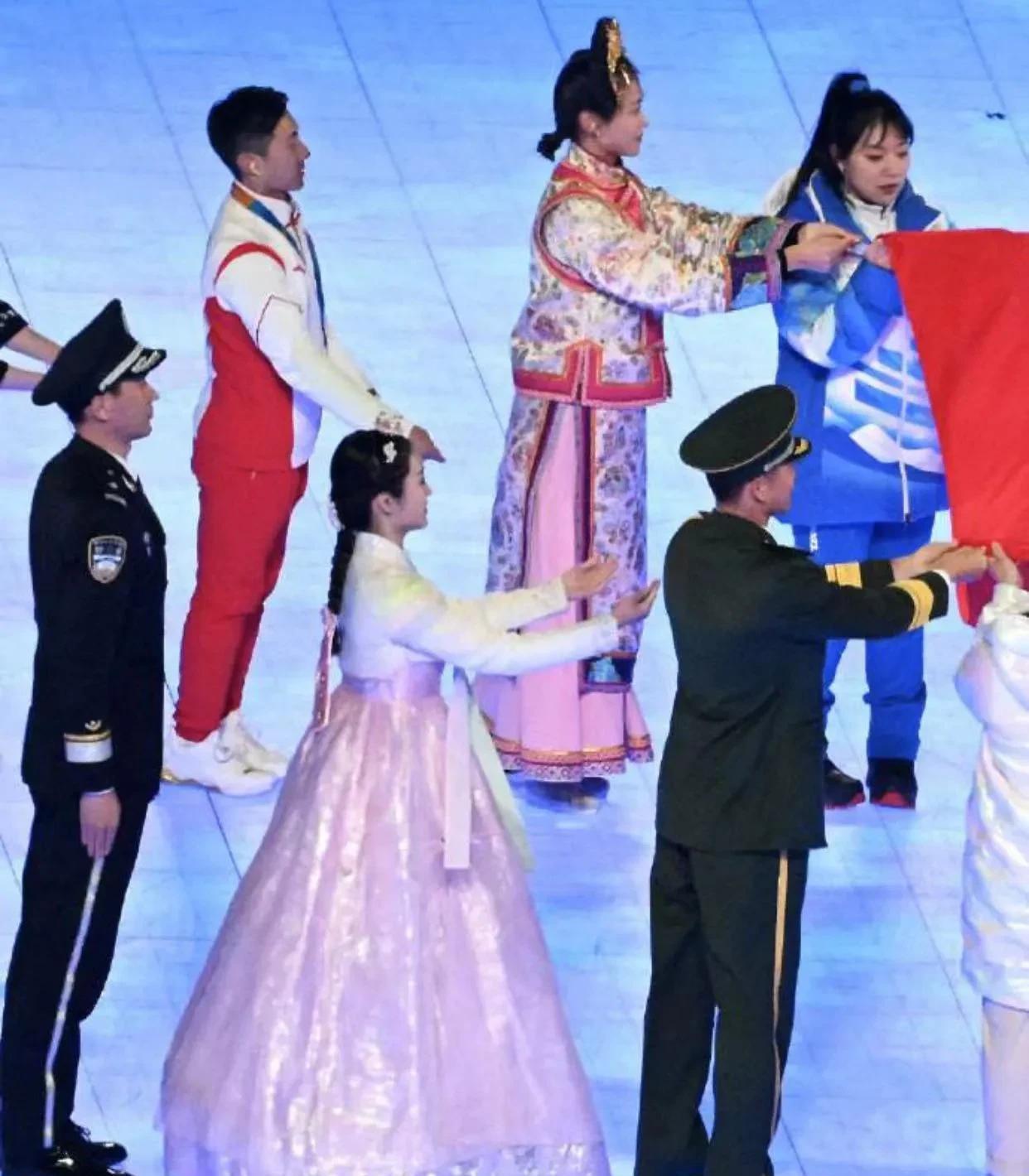
Ethnic Korean delegates at the opening ceremony of the Beijing Winter Olympics
As the so-called "opening ceremony Hanbok controversy" and "short-track speed skating referee controversy" at the Beijing Winter Olympics continue to ferment in South Korea, anti-China sentiment in Korean society is also rising. In the face of this huge public momentum, the presidential candidates of the government and opposition parties participating in the South Korean presidential election have also begun to use it to create momentum for their own election.
Yin Xiyue
South Korea's National Power Party presidential candidate Yoon Seok-yue said in an article in the US "Diplomacy" magazine that "building a solid ROK-US alliance is the central axis of consolidating ROK diplomacy", and openly stated that South Korea should side with the United States in Sino-US competition, and even advocated actively participating in the "four-party security dialogue" mechanism between the United States, Japan, India and Australia.
Lee Jae Ming
Lee Jae-myung, the presidential candidate of the South Korean Common Democratic Party, changed his previous position of stressing that cooperation with China should continue and oppose the deployment of additional "THAAD", advocating the implementation of a strict China policy and clearly moving toward being tough on China.
Public opinion is a double-edged sword, and the Korean people have always been a glass heart when it comes to issues such as national traditional culture, and they are also blindly arrogant, and many contents of Chinese culture that have been produced far longer than South Korea are regarded as "original" in South Korea.
From the government to the people, South Korea has been preemptively registering many Chinese intangible cultural heritages for more than a decade, such as the Qingming Festival and the Dragon Boat Festival, which are traditional Chinese historical festivals, and even the Spring Festival is unique to the hearts of Koreans. South Korea has also repeatedly claimed that Chinese historical figures such as Confucius, Li Bai, Qu Yuan, Zhang Sanfeng, and Xi Shi are All Koreans. In fact, in history, the clothes of the emperors of the Joseon Kingdom were all rewarded by the Chinese Emperor at that time, called Daming "Gifts". In the historical evolution, Hanbok borrowed many characteristics of Ming Dynasty costumes, that is, Hanbok originated from Hanfu!
Although South Korean rhetoric has become an international joke, Koreans are still stubbornly insistent. The mainstream public opinion in South Korean society is also burning at this point. This is also an important reason for the declining mutual goodwill between China and the ROK, especially the people-to-people relations in recent years.
Now that South Korea is facing a new presidential election, the leaders of the government and opposition parties have also keenly grasped the current situation of strong anti-China sentiment in South Korean society, trying to "take millet from the fire" to make tough noises against China and use populism to gain more voter support! However, these short-sighted practices of South Korean politicians are bound to cause great difficulties in Sino-South Korean relations after they come to power.
At the same time, it should also be noted that although the South Korean government has tried to cool down the increasingly heated anti-China sentiment in its country, americans are afraid that Sino-South Korean relations are not tense, and now they are even more frequently provoking the sensitive nerves of South Koreans. Christopher Del Corso, chargé d'affaires of the U.S. Embassy in South Korea, personally jumped out and fanned the flames. He tweeted in both English and Korean, "What do you think of when you think of South Korea?" Kimchi, K-pop music, Korean drama... Of course, there are also Hanbok", "The original Hanbok is from Korea", accompanied by a photo of him wearing Hanbok and using his hands to "compare hearts".
China is a big country neighbor that South Korea cannot move away from, and it is a country that has an extremely important influence on South Korea's economic development. China cannot sit idly by and ignore South Korea's actions that harm China's interests, nor will it remain indifferent to South Korea's moves that may endanger regional security. In 2017, the huge impact of South Korea's deployment of THAAD on Sino-South Korean relations and the huge losses suffered by South Korea are vividly remembered. Now, South Korean politicians have clearly not learned the lessons of the past, and the ultimate cost of their short-sighted approach to Sino-South Korean relations is still borne by South Korea.